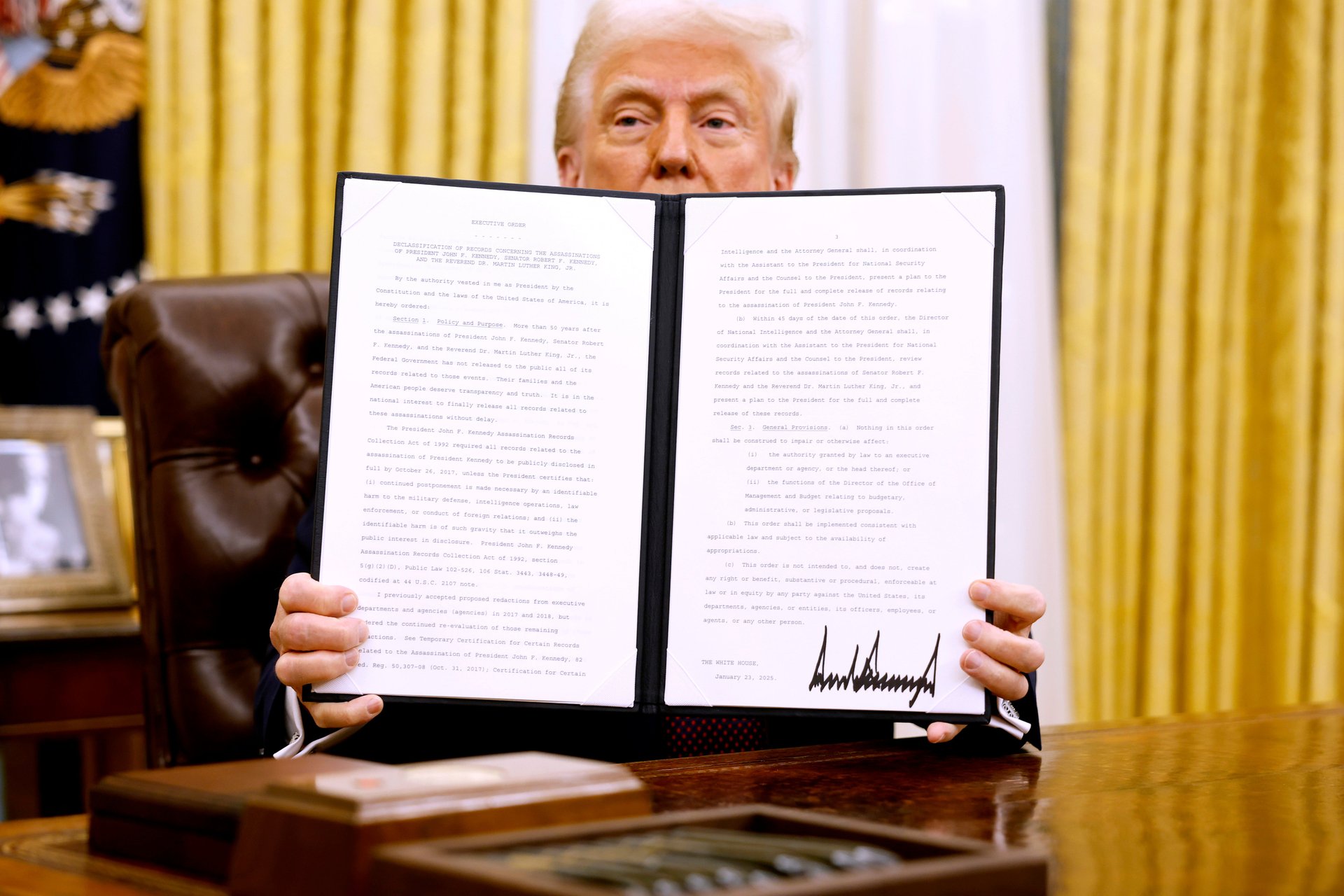Trump's 'corrupt' billion-dollar crypto deal sparks outrage in Congress
An Emirati-backed firm's $2 billion deal with Trump-backed crypto firm World Liberty Financial is threatening the bipartisan GENIUS Act

The Trump family’s latest cryptocurrency gambit may have flown too close to the sun. Now, the bipartisan GENIUS Act, one of the most comprehensive and pivotal attempts to regulate the stablecoin industry, is at stake.
Suggested Reading
World Liberty Financial, run by President Donald Trump’s sons Don Jr. and Eric, is at the center of the storm. According to the crypto company’s website, 60% of it is owned by a Trump business entity, and the venture’s close ties to the president are clear. And a recent deal the Trump-associated business made has Capitol Hill up in arms.
Related Content
On May 1, an Abu Dhabi–backed investment fund announced it would use the Trump family’s stablecoin to facilitate a $2 billion investment in the crypto exchange Binance. Critics in Congress are accusing the president and his family of pushing a self-serving crypto scheme that could undercut the very legislation they claim to support.
Democratic Rep. Maxine Waters staged a walkout during a House crypto hearing on Tuesday, citing what she called “the corruption of the president and his ownership of crypto and his oversight of all the agencies.”
But the Emirati deal isn’t the only stir the Trump-backed crypto venture has caused.
In late April, Fight Fight Fight, a company affiliated with Trump, promoted the $TRUMP meme coin by offering an “intimate private dinner” to its top 220 investors with the president at his golf club in northern Virginia and a (later-removed) “VIP White House Tour” to the top 25 holders — and the coin’s value skyrocketed by as much as 80%. Trump-linked crypto ventures have generated over $300 million in trading fees from meme coin and token sales since January.
Democrats sour on the GENIUS Act
Sen. Richard Blumenthal, who is leading an investigation into Trump’s crypto ties, said recently that “Donald Trump is selling cryptocurrency like snake oil in the Wild West, and he’s put a for sale sign on the White House for his meme coin.”
Sen. Chris Murphy, who introduced bills targeting Trump’s multibillion-dollar meme coin, called that venture “the single most corrupt act ever committed by a president.”
Before last week, the GENIUS Act had been widely supported — a piece of legislation aimed at bringing federal oversight and consumer protection to the booming and often volatile stablecoin industry. Introduced last fall by Sens. Kirsten Gillibrand and Cynthia Lummis, it seeks to establish strict requirements for reserve backing, transparency, and licensure for any issuer of U.S. dollar–pegged stablecoins.
The legislation was seen by many as a long-overdue answer to a regulatory gray zone that has allowed stablecoin projects to balloon with little federal oversight. The Senate is set to begin considering the GENIUS Act on Thursday. But it’s once-easy passing has become much more complicated — it lost at least nine Democratic supporters last week.
Sen. Elizabeth Warren warned that the GENIUS Act “will make it easier for the president and his family to line their own pockets.” She added: “This is corruption, and no senator should support it.” At a closed-door meeting last week, Senate Democratic Leader Chuck Schumer urged his party to hold firm on withholding support for the legislation unless tighter anti-corruption measures are included.
GOP also hesitant on the bill
It’s not just Democrats who have expressed wariness over the president’s crypto dealings, although they’ve been the most vocal about their outrage. Lawmakers on both sides of the aisle have suggested they might not back the legislation — albeit Republicans haven’t expressly said that would be because of Trump’s crypto ties.
Republican Sen. Rand Paul is a likely no, he said on Tuesday, because the regulations it would impose could harm the crypto industry down the road. And Sen. Josh Hawley said he’s “not a fan of Big Tech issuing their own stablecoin,” which could be allowed under the GENIUS Act.
Sen. John Kennedy is also wary about voting for the bill — especially as Democrats work to change phrasing and key aspects related to the president. He said, “They’re making deals all over hell and half of Georgia. Until I understand what those deals are and how the bill has changed, I’m not on board.”
Trump, who has branded himself as “the first Crypto president,” has denied any wrongdoing. In an interview with NBC’s (CMCSA) Meet the Press, he claimed his crypto ventures predated his 2024 campaign and that he hasn’t “even looked” at how it’s doing.
The White House, through spokesperson Anna Kelly, told Axios, “President Trump is dedicated to making America the crypto capital of the world and revolutionizing our digital financial technology,” adding that Trump’s crypto assets are “in a trust managed by his children, and there are no conflicts of interest.”
A New York Times report, however, found that World Liberty Financial has “erased centuries-old presidential norms, eviscerating the boundary between private enterprise and government policy in a manner without precedent in modern American history.”
Democratic Sens. Jeff Merkley and Warren plan to introduce legislation that would ban the president, vice president, lawmakers, and their families from launching or profiting from crypto assets while in office — a direct response to Trump’s business activity. Gillibrand and other Democratic senators are also co-sponsors of the End Crypto Corruption Act.
Merkley told USA Today, “This is not a situation where somebody is passing a few thousand dollars under the table as a bribe. This is a situation where – on the table, in full view of the public – the president is selling access to his office. ... If we’re going to have any credibility in working for the people, we have to end this vastly corrupt enterprise the president’s engaged in.”
